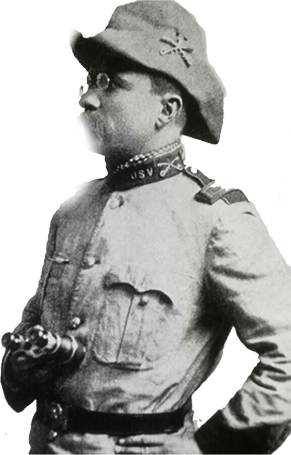The TRCP’s scouting report on sportsmen’s issues in Congress
Administration picks continue to be put to the test before lawmakers. The Senate Energy and Natural Resources Committee held a confirmation hearing on Congressman Zinke’s (R-Mont.) possible role as the next secretary of the U.S. Department of the Interior. On Tuesday, Rep. Zinke, who is perhaps the least controversial pick among President-elect Trump’s cabinet nominees, answered questions on federal public land transfer, coal programs, energy extraction on public lands, funding for land management agencies, and other conservation issues.

The following day, the Senate Environment and Public Works Committee will hold a confirmation hearing for Scott Pruitt, Oklahoma’s attorney general, who will testify and answer questions about his agenda as the next administrator of the U.S. Environmental Protection Agency.
We’re still watching out for President-elect Trump’s pick for secretary of the U.S. Department of Agriculture, which has yet to be announced.
Budget resolutions were filed, indicating lawmaker priorities. Last week, the Senate and House passed the Fiscal Year 2017 budget resolution by the skin of its teeth, with a 51-48 vote, mostly as a legislative vehicle for the repeal of the Affordable Care Act. While budget resolutions are non-binding, they are taken into account when lawmakers sit down to draft the real deal.
We can also look to natural resources amendments, which were filed but not considered on the Senate floor last week, to predict what will be submitted for the next year’s budget resolution. The FY18 resolution will likely be much more relevant to conservation policy, and we expect it to be introduced in the Senate and House by the end of February.
Another forecast: The Clean Water Rule could be withdrawn. In order to clarify the jurisdiction of headwater streams and wetlands, Senators Joni Ernst (R-Iowa) and Deb Fischer (R-Neb.) introduced a non-binding resolution that would express Senate support for the withdrawal of the Obama administration’s Clean Water Rule.
To cap the week, Washington, D.C. is expecting an influx of visitors for the presidential inauguration. President-elect Trump will be sworn into office on Friday, January 20.


 Efforts were made to eliminate recent regulations during the first week. The House quickly passed two bills which aim to facilitate the removal of rules that were made in the final days of the Obama administration.
Efforts were made to eliminate recent regulations during the first week. The House quickly passed two bills which aim to facilitate the removal of rules that were made in the final days of the Obama administration. 







 Another great elk season on America’s public lands. Conditions were tough, but our party hunted hard and managed to pack four bulls and three bucks into our Montana hunting camp. The freezers are full.
Another great elk season on America’s public lands. Conditions were tough, but our party hunted hard and managed to pack four bulls and three bucks into our Montana hunting camp. The freezers are full.



Zinke is a great call for interior secretary. Trump seem’s sincere about keeping it public, Pence is the fear. Pence with his T party history will transfer in a D.C. Minute. Thank you for your vigilant oversight.
thanks for overseeing the government’s policy for the benefit of society.